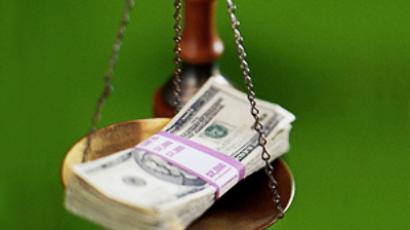Privatisation prices and benefits come under question
Russia is launching a new privatisation drive, putting around 450 companies up for sale next year. That has some questioning where the buyers will come from and if prices will be bargain basement.
Privatizations are expected to bring Russia nearly $3 billion next year – 10 times more than previously scheduled. Infrastructure firms, ports and some airports will be first on the table, and Prime Minister Vladimir Putin wants a market price.
"Privatisations must neither be free nor privileged. If federal property must be sold, it should be sold at the real market price, without any discount."
But some experts say that, at the moment, the market may undervalue state assets and that the jewels of the Russian economy could be sold on the cheap. Peter Westin, Chief Equity Strategist at Aton, says it is unlikely that it will be the jewels.
“I don’t think that they will sell the jewels. They've already said, there are certain companies that they will not sell next year. But there could be some interesting companies, for example, they are talking about sea ports, river ports, and airports. That will actually help to diversify the market. Whether they will be overpriced or not is impossible to say.”
Half of Russia's economy is currently under state control. Eventually the country wants to reduce state ownership of business to 30% or less. But Peter Westin believes the impetus could ease if there is enough money coming into the budget coffers.
“You have 3 major political factors in Russia: Putin, Medvedev, and oil price. If the oil price goes up significantly – the government will get more money into the budget and the need for privatisation will diminish.”
The government's spending will exceed its income by about $100 billion. Even on the most optimistic estimates, the proceeds of privatisation, will only offset about 3 per cent of the deficit.













